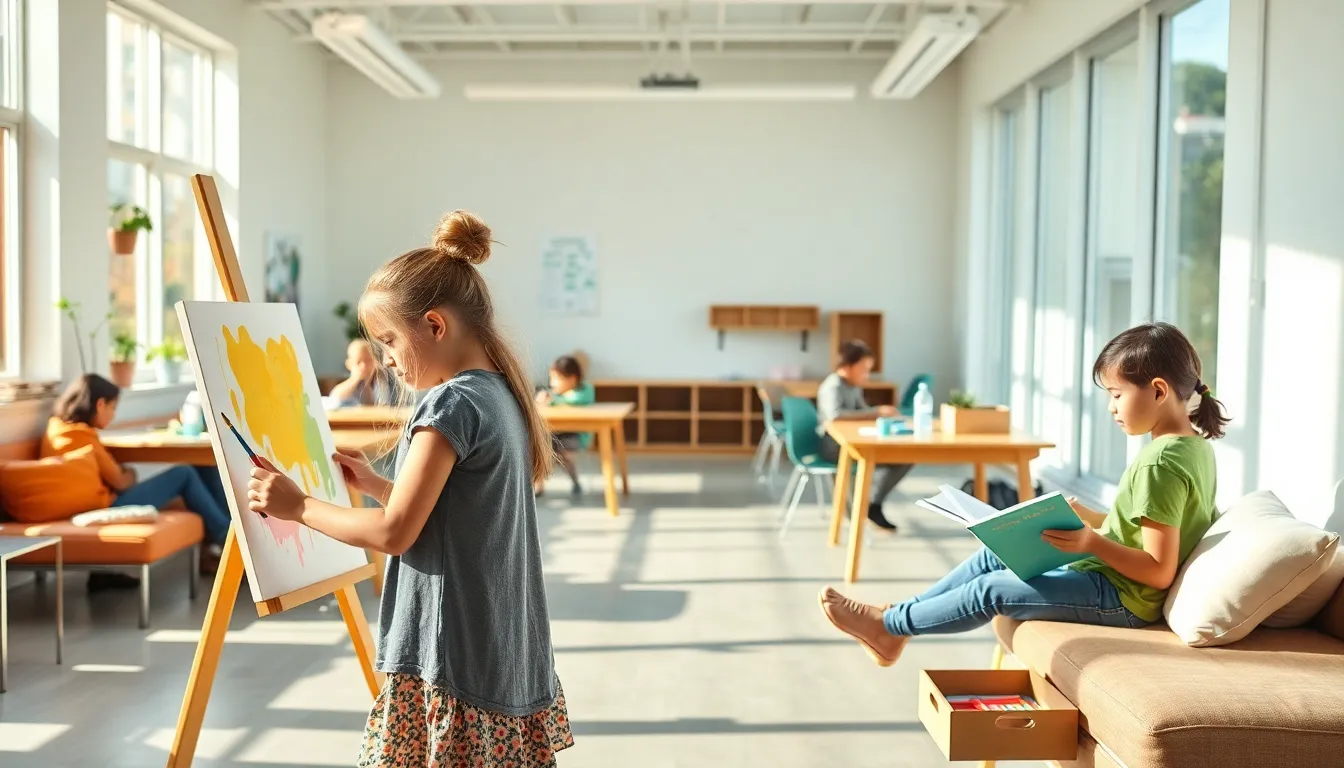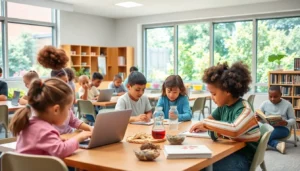Table of Contents
ToggleEver wondered what education looks like outside the traditional classroom? You’re not alone. Alternative education is like that intriguing dessert on a menu, sometimes it’s hard to define, but once you try it, you realize it’s just what you needed. With its diverse methods and approaches, it caters to different learning styles and needs. Let’s jump into the meaning of alternative education and peel back its layers to uncover historical roots, benefits, and potential challenges. Buckle up: it’s going to be an enlightening ride.
Defining Alternative Education

Alternative education refers to educational methods and institutions that deviate from mainstream or conventional practices. It encompasses a broad spectrum of learning experiences, including Montessori schools, homeschooling, unschooling, and experiential education. At its core, alternative education prioritizes student-centered learning, allowing individuals to pursue their interests within a supportive environment. Unlike traditional models that often emphasize standardized testing and rigid curricula, alternative education focuses on nurturing creativity, critical thinking, and personal growth. This flexibility makes it appealing to diverse learners, from the artistic type to the academically inclined.
Historical Context of Alternative Education
The roots of alternative education can be traced back to the early 20th century when educational reformers began questioning the effectiveness of conventional schooling. Figures like Maria Montessori and John Dewey championed progressive education, emphasizing hands-on, experiential learning. Fast forward to the 1960s and 1970s, alternative education blossomed, influenced by countercultural movements advocating for greater freedom in personal expression and education. During this period, experimental schools and new educational philosophies emerged, paving the way for the diverse options we see today. Understanding this historical context illuminates why alternative education remains relevant and continues to evolve.
Different Approaches to Alternative Education
Alternative education isn’t a one-size-fits-all model. It’s essentially a buffet of approaches, each designed to cater to different learning styles.
Benefits of Alternative Education
Here are a few distinct alternatives:
- Montessori Schools: This approach allows children to learn at their own pace in a prepared environment. It nurtures independence and promotes a love for learning.
- Homeschooling: Families take education into their own hands, creating tailored curricula that resonates with their child’s interests and needs.
- Unschooling: This radical approach encourages children to follow their natural curiosity and learn through life experiences rather than structured education.
- Waldorf Education: Emphasizing creativity and social responsibility, Waldorf schools integrate arts and academics, focusing on holistic development.
Each of these methods has distinct advantages, such as fostering independence, critical thinking, and self-directed learning. But, they also require active involvement and commitment from educators and families.
Challenges and Criticisms of Alternative Education
While alternative education offers an array of opportunities, it isn’t without its critics. Detractors often argue that some of these approaches lack structure, leaving children ill-prepared for traditional academic environments. Concerns about insufficient socialization opportunities also arise, what happens to kids when they’re not surrounded by their peers in a conventional school setting? Besides, the acceptance of these programs varies significantly across regions, meaning that availability and support can be limited. These challenges compel advocates to find a balance between innovative practices and the fundamental educational standards that all children should receive.
Popular Types of Alternative Education Programs
Several alternative education programs gained popularity in recent years, attracting parents seeking more personalized learning experiences for their children.
- Charter Schools: Operated independently of the traditional public school system, these schools offer innovative curricula while still receiving public funding.
- Online Learning: Offering flexibility and a vast range of resources, online education has made strides, especially following the pandemic, when many parents turned to virtual schooling.
- Experiential Learning Centers: These programs emphasize hands-on learning through real-world experiences, blending education with practical applications.
Each type has its unique appeal and implementation, creating diverse avenues for students to thrive.
Future of Alternative Education
The future of alternative education looks promising, as it is increasingly recognized as a viable option to meet the diverse needs of learners. With rapid advancements in technology, hybrid models combining traditional and alternative education are emerging. Innovations such as virtual classrooms, adaptive learning software, and immersive educational experiences are changing the landscape. Besides, growing support from policymakers and educators acknowledges the importance of choice in education. As the world becomes more interconnected and the demand for personalized learning rises, alternative education may very well become the norm rather than the exception.




